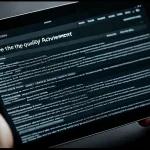Overview of Emerging Smartphones
The world of emerging smartphones is a fascinating landscape, especially when observing the UK technology trends. As technology continues to evolve, the UK remains at the forefront of smartphone evolution, boasting a rich history of innovation and adaptation.
Initially, the UK played a significant role in the historical context of smartphone development, transitioning from the bulky mobiles of the early 2000s to today’s sleek, powerful devices. The UK market has always been keen on embracing cutting-edge technology, setting a pace for global trends. Companies like Nokia and Blackberry, once dominant, have given way to today’s market leaders like Apple, Samsung, and emerging players such as Xiaomi and Huawei, which are making significant inroads.
In the same genre : Exploring the impact of cutting-edge smartphone tech on user experience
In this vibrant market, several key technological advancements are shaping the future of smartphones. Innovations like 5G connectivity, AI integration, and enhanced camera technologies are just a few elements driving the industry forward. These developments are not just bells and whistles; they significantly enhance user experience and capabilities, keeping consumers engaged and eager for the next big release.
The rapidly advancing world of emerging smartphones highlights a continuous push for higher efficiency, better connectivity, and unique features that cater to the evolving needs of tech-savvy users in the UK.
In the same genre : How Do Smartphones Impact Modern Computing Trends?
The Evolution of Computing in the UK
The computing evolution within the UK has traversed a transformative path, marking significant shifts from traditional systems to the mobile-centric world we navigate today. This journey began with larger computing devices that once dominated offices and homes, but the rise of mobile technology has fundamentally altered the landscape.
Transition from Traditional Computing Devices to Mobile Technology
Over the decades, the UK has seen a shift from bulky desktops to slim laptops, eventually leading to the compact powerhouses we hold in our palms—smartphones. This transition has streamlined processes and made technology more accessible, supporting a lifestyle that’s increasingly on-the-go.
Major Milestones in UK Computing History
Several key milestones highlight this journey, such as the introduction of personal computers in the 1980s which revolutionized how individuals interacted with technology. The internet boom in the late 1990s and early 2000s further accelerated this trend, enabling seamless communication and information access.
Influence of Smartphones on Personal Computing Behaviors
In recent years, smartphones have taken center stage, reshaping personal computing behaviors by offering functionalities once reserved for larger devices. They’re not just communication tools but multifunctional gadgets that enable work, entertainment, and social interaction from virtually anywhere. These advancements underscore the dynamic role of mobile technology in the UK computing landscape, continually pushing the boundaries of innovation.
Mobile Computing Trends
The landscape of mobile computing continues to evolve, with an increased focus on smartphone trends and their influence on user adoption. The trend is towards making mobile computing more integrated into daily life, fostering a seamless digital experience.
Rise of Mobile Applications
One significant aspect of this trend is the rise of mobile applications. These apps are not just tools but essential components of the user experience, enhancing the functionality of smartphones. From productivity tools to entertainment, there’s an app for nearly everything, and this diversity is a key driver of mobile computing’s popularity.
Impact on Work and Productivity
In the workplace, mobile computing has transformed productivity. Smartphones and their associated applications facilitate remote work, providing employees with the flexibility to manage tasks from anywhere. This shift has resulted in more dynamic work environments and has become a catalyst for increased efficiency and innovation.
Everyday Consumer Behavior
Moreover, everyday consumer behaviour is continually shaped by smartphone capabilities. People are using smartphones to shop, bank, socialize, and even manage their health. This widespread adoption illustrates how these devices have become indispensable in modern life, aligning with broader mobile computing trends.
Understanding these trends and their implications provides insight into the future directions of mobile technology, which continues to dominate the digital landscape.
Comparison Between Smartphones and Traditional Computing Devices
The debate of smartphones vs. traditional computing devices hinges on various aspects ranging from performance to user experience. Performance differences are stark; smartphones have increasingly closed the gap with laptops and desktops, thanks to advancements in processors and efficiency. While desktops still hold the lead in raw computational power, smartphones offer unparalleled portability and impressive performance for everyday tasks.
In terms of usability and accessibility, smartphones provide an intuitive and convenient user interface, with touchscreens and voice command options enhancing ease of use. These features, combined with applications tailored for mobile use, significantly streamline the user experience, especially for everyday tasks like browsing, communication, and media consumption.
Consumer preference trends show a growing inclination towards smartphones over traditional PCs, largely influenced by the demands for mobility and immediate access to information. As smartphones continue to integrate functionalities that were previously exclusive to laptops and desktops, more users find themselves favoring these all-encompassing devices. The evolving needs of consumers in the UK align with these advancements, as they seek devices that accommodate both their professional and personal lives seamlessly.
Future Predictions for Smartphones in the UK
The future smartphone trends in the UK hint at an exciting horizon, driven by continuous advancements in mobile technology. Industry experts speculate several potential technological advancements, which are likely to redefine the smartphone evolution landscape.
Technological Advancements
One significant advancement expected is the further integration of artificial intelligence (AI) and machine learning. This will allow smartphones to deliver even more personalized experiences by learning and adapting to user behaviours. Enhanced biometric security features, such as facial recognition and fingerprint sensors, are anticipated to become standard, offering heightened security.
Another exciting development is the push towards quantum computing, which holds the potential to revolutionize processing power and speed in smartphones. Augmented Reality (AR) applications are also set to expand, providing more immersive and interactive experiences in fields like gaming and education.
Consumer Adoption Rates
The consumer adoption of these cutting-edge technologies is expected to accelerate, with users eagerly embracing innovations that enhance functionality and convenience. Surveys indicate that UK consumers are particularly enthusiastic about adopting technologies that improve connectivity, such as 5G. As these technologies become more mainstream, the adoption rates are projected to rise sharply.
Role of Emerging Smartphones
Emerging smartphones will play a crucial role in shaping the UK’s digital infrastructure. They are expected to support the increased demand for smart home and IoT applications, driving the evolution of interconnected devices. This will also lead to smart cities, where data-driven solutions improve urban living.
In conclusion, the UK is poised to witness transformative changes in its smartphone landscape, with innovations continuing to elevate technology predictions and fuel the mobile industry’s growth.



